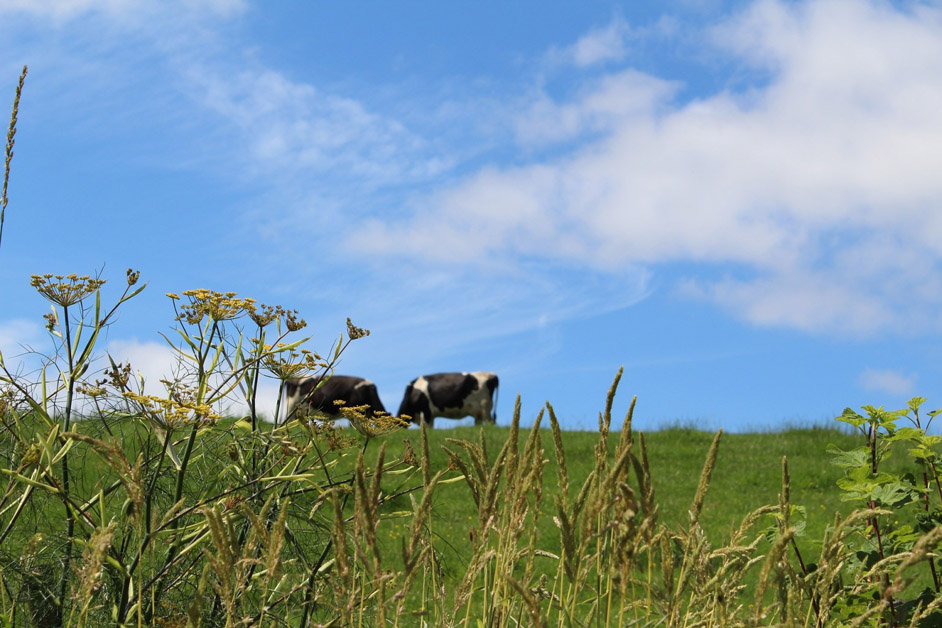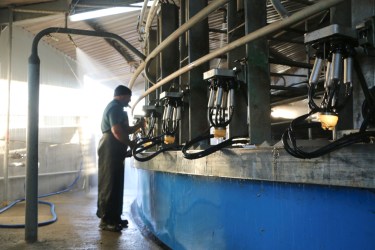By Neil Adams
Sustainability has been a conversation starter for some years now, with many ways to broach the topic. While it is often defined as the avoidance of the depletion of natural resources, there are some more abstract aspects that should be considered when developing a sustainable business framework.
Farming in a way that ensures that land, resources and finances will be available, and in good condition, for generations to come, is the basic tenet of sustainability in agriculture. It should be the goal for all successful farming operations.
Looking at leadership
At the centre of this goal and all efforts to make a business sustainable are the investments, actions and decisions we choose to make. Decisions need to take into consideration ecological health, economic profitability and social equity. This requires leadership, which we define as the process by which you maximise your own efforts and the efforts of others towards the achievement of a common set of objectives.
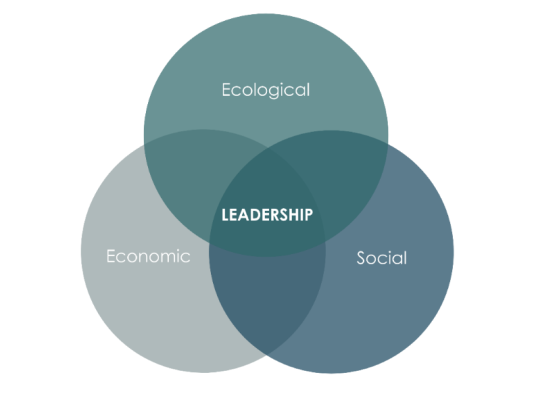
This is why, we place leadership and management as the key enabler of sustainable development in farming. If a leader, or those being led, have vague, fuzzy or unhelpful beliefs and attitudes then the approach towards sustainable success is one of great difficulty and hardship. It is the one constant that needs to be honed at every level, with every generation.
Evaluating your business
We recently encouraged our customers to evaluate their leadership style and what impact this is having on their sustainability goals. Covering the topic of succession, leadership style, employment and personal growth, the survey offered clear insight into the areas that they are excelling in and those that could benefit from further improvement.
Overall, it was interesting to see that all four topics mentioned above were considered a priority for almost half of those surveyed.
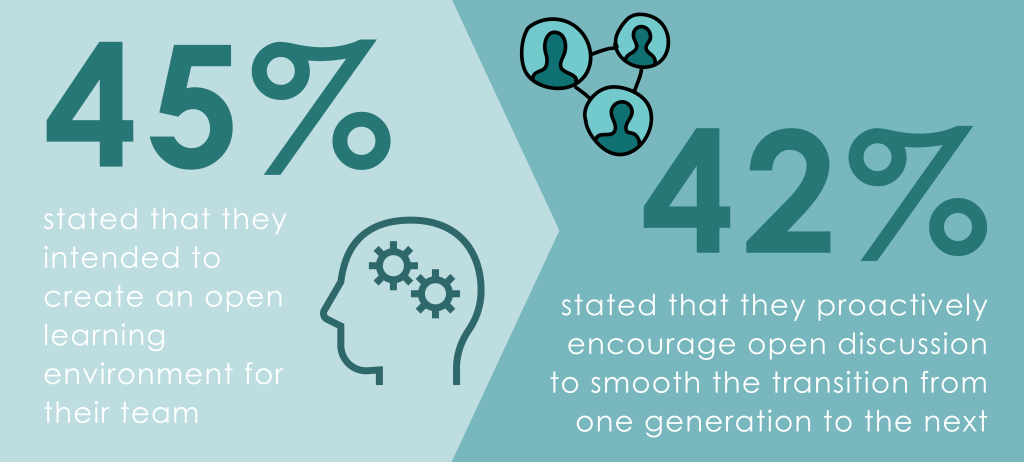
These are arguably very positive results and show that sustainable leadership is often taken into consideration. Although, in comparison to one of the other aspects that we encouraged our respondents to consider, leadership sat slightly lower on the agenda.
Being socially sustainable
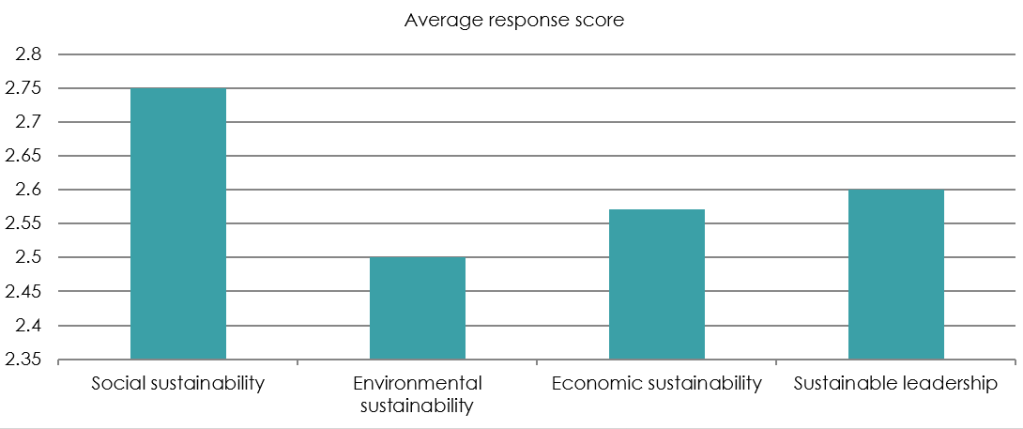
Responses are graded on a scale of 1 to 4: 1 = low sustainability, 4 = high sustainability
The scores are averaged across each category of questions
If you look at the figure above, you’ll see that our respondents are putting the greatest focus on social sustainability, with the average response score at 2.75. This is reflective across all four topics presented under the socially sustainable bracket, including safe nutritious food, safe work, animal health & welfare and community engagement.
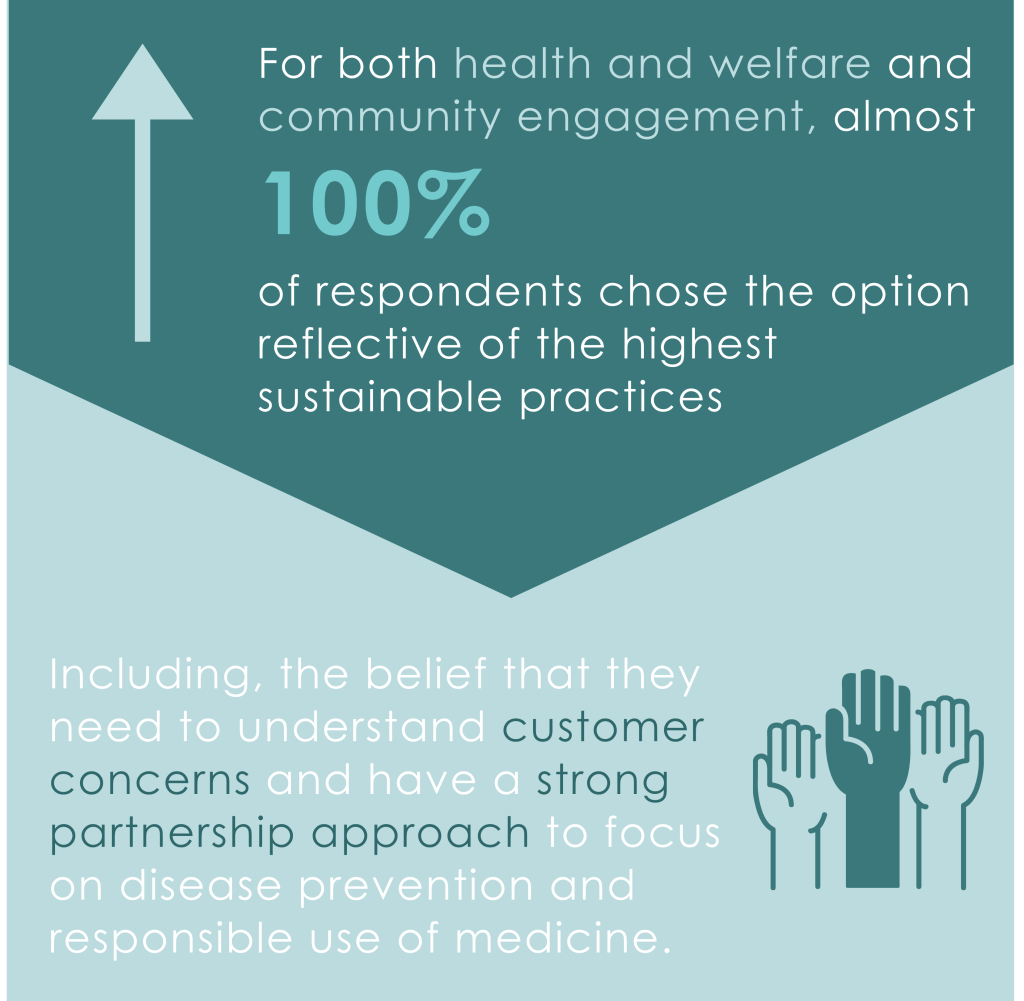
A focus on social responsibility is essential for those who wish to run a successful farm business. Farmers have a role to play in meeting, often competing, demands that people require from the food they buy, therefore they need to be prepared and willing to reach these expectations.
An environmental approach
Our findings revealed that not all results are wholly positive, however. If we look at figure 3, we can see that the environmental sustainability score sits lower than the other three. Respondents were asked to evaluate, from levels 1 (low) to 4 (high), how much time they invest into carbon emissions, air quality, improving soil health and biodiversity. As you can see, the result wasn’t one to be necessarily negative about but there is certainly room for improvement.
Sitting at an average score of 2.5, it is evident that those surveyed are putting some thought towards the ecological health of their farm. There is still a way to go though.
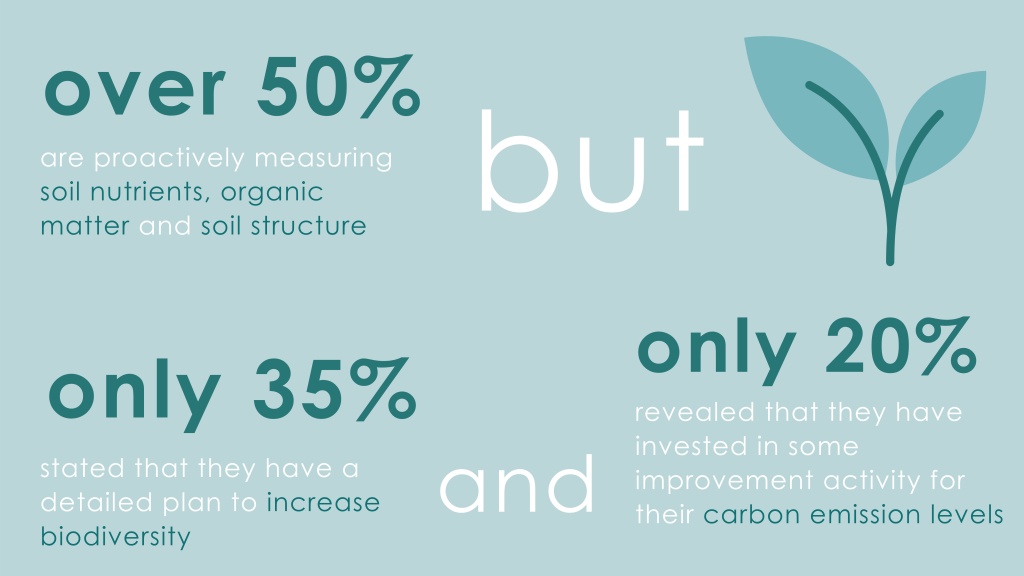
While this activity is key to meet grant requirements, it is also valuable for creating business opportunities. We encourage you to consider how to utilise natural resources in such a way that you regenerate their productive capacity and how to design your farming system to incorporate crucial functions of natural ecosystems.
Evaluating economic profitability
The last item to evaluate is economic profitability. To be economically sustainable, a farmer does not have to make a profit every year. In fact, competent farmers know that they will not be able to cover their operating costs all the time, and plan accordingly. It’s about investment, financial control, the performance of your enterprise and how you utilise support payments.
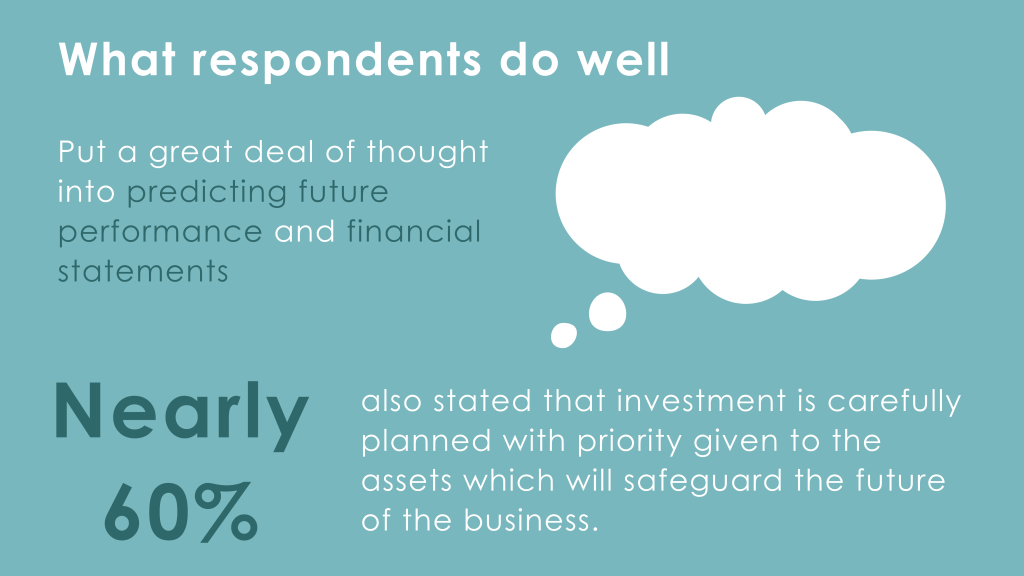
There are some positive takeaways from this section of our survey. But it did reveal that while 30% know the yields, prices, and cost of inputs on their farm, they don’t have detailed measures of the physical or financial performance of each enterprise. This is going to heavily impact the way a business measures its long-term profitability. Farmers should consider producing enterprise gross margins which will allow them to appreciate the relative performance of each enterprise and benchmark their performance.
Why businesses should be adopting a sustainable approach
With BPS set to reduce, farmers are being encouraged to evaluate the sustainable farming incentives that are slowly being introduced. This includes the new pilot scheme. We encourage you to get ahead of the game and consider how you can deliver success when it comes to supporting the environment, promoting animal welfare and being socially responsible. Looking at everything as a whole package will put you in good stead for future success.
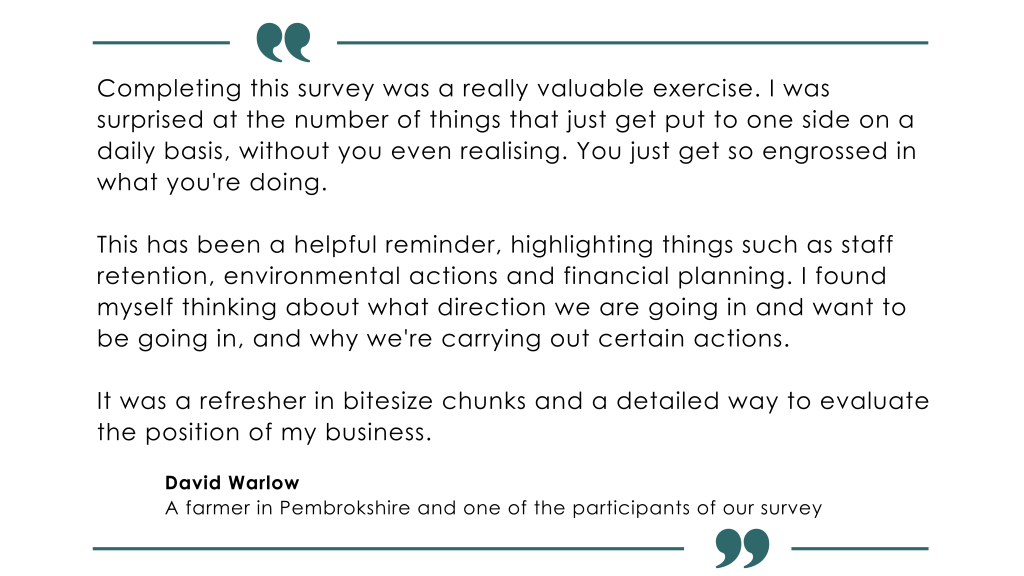
To complete our survey and to evaluate how sustainable your business is, click here.
Have you implemented an innovative idea on farm to improve sustainability, efficiency and/or animal welfare? We want to hear from you! The We Are Dairy award is your opportunity to share your examples of sustainable and welfare improvements, and to win a grand prize of $10,000.




